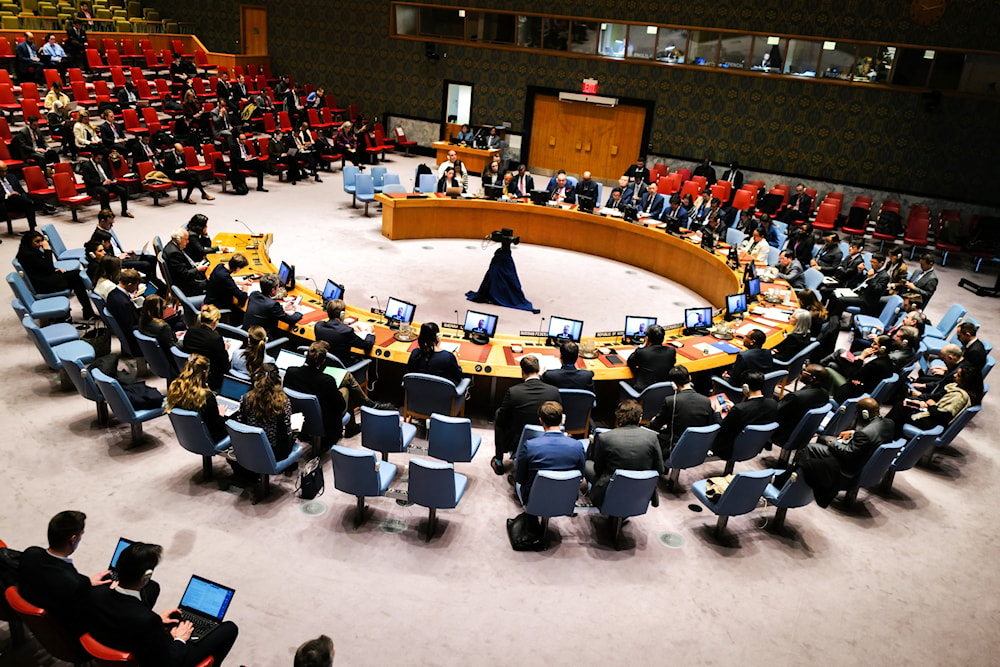UNSC members fail to reach 'consensus' on Palestine UN membership bid
Palestine, which has had observer status at the world body since 2012, has lobbied for years to gain full membership.
-

The UN Security Council holds an emergency meeting on the risk of famine and attacks on humanitarian workers in Gaza, at UN headquarters in New York on April 5, 2024. (AFP)
Members of the UN Security Council failed to reach a consensus Thursday on a bid by Palestine for full UN membership.
Palestine, which has had observer status at the world body since 2012, has lobbied for years to gain full membership, which would amount to recognition of Palestinian statehood.
Any request to become a UN member state must first pass through the Security Council, where "Israel's" ally the United States wields a veto, and then be endorsed by the General Assembly.
Amid the ongoing Israeli war on the Gaza Strip, Palestine revived a 2011 UN membership application last week, prompting the Security Council to launch a formal review process, which included the committee that failed to reach consensus and was composed of the council's member states.
During a closed-door meeting "there was no consensus," announced Maltese Ambassador Vanessa Frazier, who holds the council's rotating presidency for April.
However, two-thirds of the members were in favor of full membership, she said, without specifying them.
AFP cited diplomatic sources as saying that a vote could be held on April 18, brought forth by Algeria which represents Arab nations on the Council.
Even if the matter were to receive the necessary nine of 15 votes, observers predict a veto from the United States, which argues that Palestinian statehood should be the result of an agreement between "Israel" and the Palestinians.
"All we ask for is to take our rightful place among the community of nations," Palestinian UN envoy Riyad Mansour told reporters earlier this week.
It is noteworthy that in late February, the Israeli Knesset passed a draft government resolution unilaterally rejecting the recognition of a Palestinian state by "Israel".
The resolution was passed with an overwhelming majority of votes, as 99 out of 120 Israeli lawmakers backed the legislation. The motion was initially approved by the Israeli cabinet.
Israeli occupation Prime Minister Benjamin Netanyahu had pointed out that the resolution aims to reject so-called "international diktats" regarding a permanent settlement with the Palestinians.
He further stated that if a settlement were to be reached, "it would come about solely through direct negotiations between the parties, without preconditions."

 2 Min Read
2 Min Read








